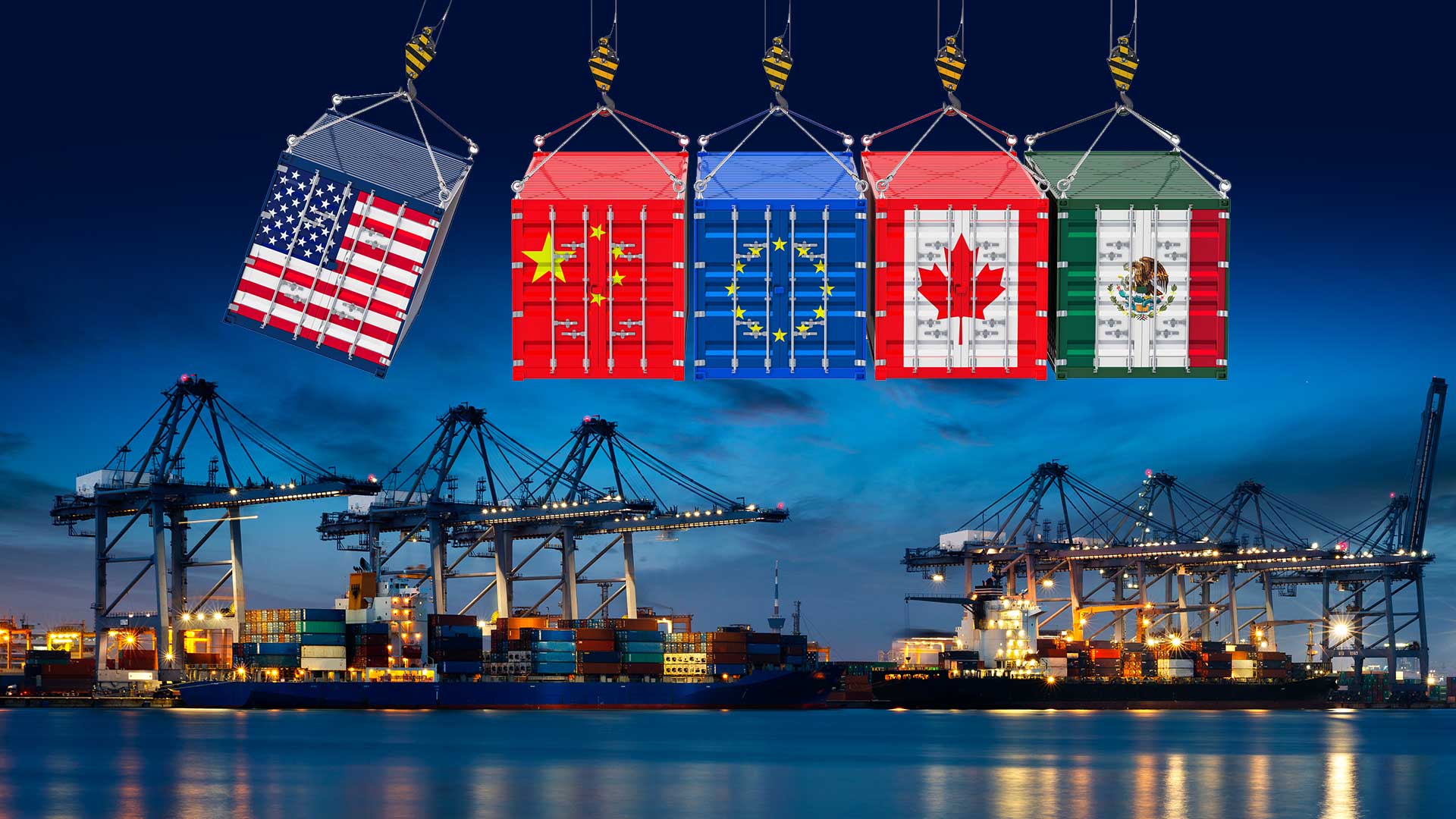
Older readers probably still remember Camillo Felgen well. The Luxembourgish singer — of “Sou laang wéi s du do bass” (“As Long As You Are There”) and “Ich hab Ehrfurcht vor schneeweißen Haaren” (“I Respect Your Gray Hair”), among others — and commentator headed the television program “Spiel Ohne Grenzen” (“It’s a Knockout”) from 1965 to 1973. The beloved show, in which teams from different European countries competed against each other in creative games, took place long before the creation of a domestic market with free movement of people became core to the European Union. When the Schengen Agreement took effect, passport controls at internal borders became obsolete. With their recent, temporary (at least for now) reintroduction, the wheel of time has been rolled backward a little.
World trade has been moving in reverse for some time now. If the period since the 1947 General Agreement on Tariffs and Trade, from which the World Trade Organization eventually took shape, was the heyday of free trade, followed by multi- and bilateral free trade agreements, the wind has already begun blowing in a different direction. Protectionism is experiencing a revival. China, the U.S., and even European countries are imposing special tariffs on imported goods. The conflicts are being fought with increasing severity, such that one can already speak of “trade wars.”
The age of globalization seems to be over. It had caused an increase in global trade, and the dismantling of barriers to trade led to the smoother exchange of goods. More competition and a wide supply of goods, as well as low prices, were the result. Globalization did not only create new jobs; it also pulled millions of people out of poverty.
Its critics, however, pointed out that the wealth it created was unequally distributed and that industrialized countries increasingly outsourced production to other countries to cut costs. Big corporations exploited cheap labor in developing countries. The accusations also affirmed that globalization resulted in a bigger division between rich and poor, more dependence on other countries, a few global players gaining the advantage, increased strain on the environment, acceleration of climate change and, last but not least, global standardization. Free trade agreements like the Transatlantic Trade and Investment Partnership or the EU-Mercosur Trade Agreement were torpedoed. A famous example was the disagreement about chlorinated chickens.
On his way into the White House, Donald Trump, who imposed thousands of tariffs during his first term in office, announced again and again that he would impose high import tariffs. He believes that they will cause companies to relocate production from overseas back to the U.S. The trade partners who are attacked would impose their own tariffs in retaliation. Global trade would collapse; trade blocks would take shape that closed themselves off to the outside. Corporations and consumers would have to bear the costs; the cost of living would increase, and the GDP would shrink.
The crazy idea that globalization made the country poor has crystallized in the U.S. It is better to close the country off to the world, they say. Protectionism has become a cure-all, writes the Süddeutsche Zeitung. Trump’s opponent, Kamala Harris, hardly presented herself as less protectionist. Even Joe Biden retained Trump’s tariffs and even raised some of them. The Economist has called it a “Trumpification of American policy.”* Protectionism has gone mainstream, at least in the U.S.
*Editor’s note: This quote, though accurately translated, could not be independently verified.

Leave a Reply
You must be logged in to post a comment.